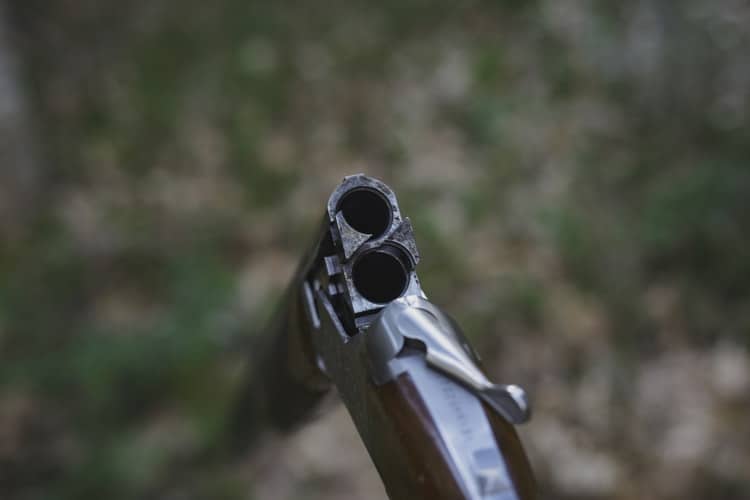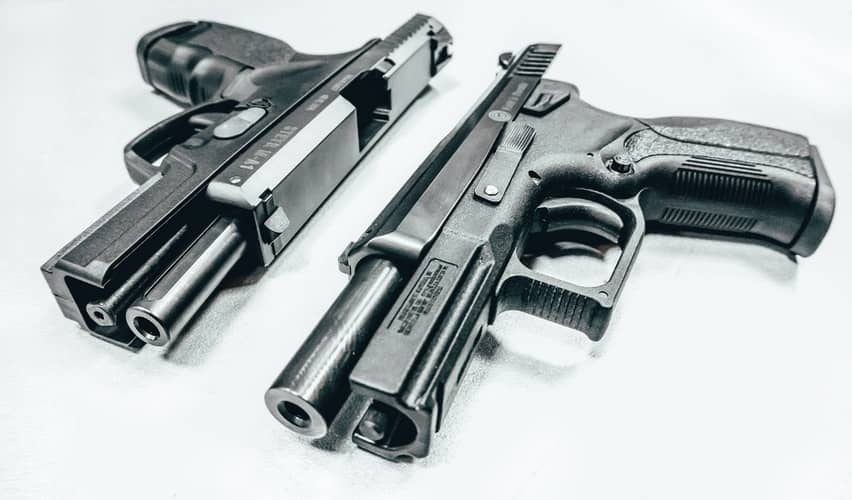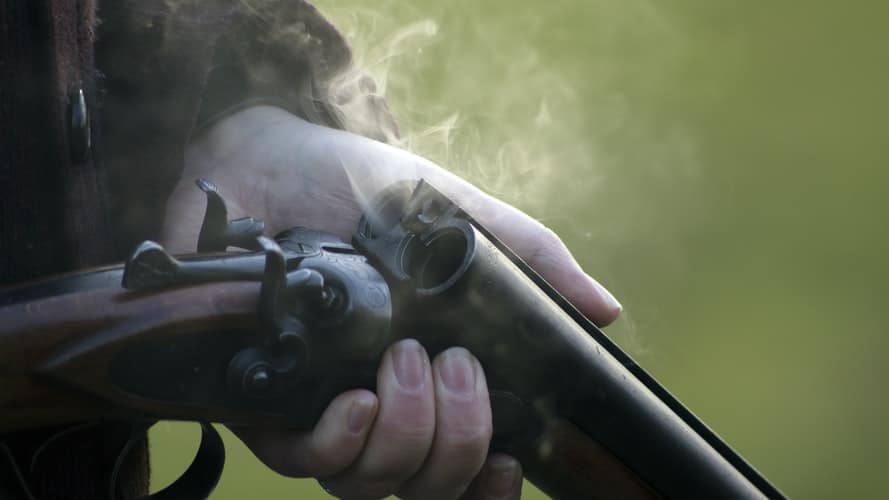As an Amazon Associate we earn from qualifying purchases.
If you regularly maintain your gun, there is a lesser chance of any accidental discharge. If you are a beginner in gun cleaning, however, there are a lot of things that you are unsure of. One common question most new people ask is: Should you oil the inside of a gun barrel?
Contents
Should You Oil the Inside of a Gun Barrel?
Yes, you should oil the inside of a gun barrel for protection and not for your lubrication. Oiling the inside of a gun barrel will protect it from rusting. It won’t affect its effectiveness when firing.

Note, however, you should only put a light application of oil in the bore. Squeeze out as much oil from the patch to have the slightest amount of oil possible. Use it to clean the inside of your gun barrel, running the patch through a bore.
Remember, you should avoid cleaning the inside of your gun barrel a day before a shooting competition. The oil inside the barrel will burn which makes your shot go a bit higher. The tiny bit of inaccuracy can mean a lot in target shooting competitions.
What Happens if You Don’t Oil Your Gun?
If you fail to regularly put oil in your gun, there is a high chance that it could rust. Rust causes corrosion and produces deposits that affect the functionality and structural integrity of your gun.
You also leave residues inside your gun barrel from shooting your gun. If you don’t oil or clean the inside, it will stick around the inside of your gun barrel and cause some problems and cause fouling.
Fouling can affect the effectiveness of your gun and can also affect the gun’s accuracy.
The four common types of fouling you encounter are:
- Carbon – caused by burning powder residue
- Copper – caused by copper-jacketed bullets residue
- Lead – caused by lead bullets residue
- Plastic – caused by plastic wads
What Happens If You Put Too Much Oil on Your Gun?
One or two drops of oil are all you need to oil the inside of a gun barrel. If you put too much oil, your gun will gum up hard that it won’t be as smooth and slippery it once was. The oil gets mixed with copper, carbon, and gun powder that it creates a mixture similar to cement.

The practice of oiling too much on guns dates back to old world wars. Most soldiers didn’t have time to properly oil their guns so they applied too much oil to help keep the guns running even on muddy terrains.
However, new technology helped manufacturers create a lubricant that doesn’t need too much application to be effective. The materials used have also been changed and the lubricating strength has improved since then. That’s why it’s no longer viable to put too much oil on your guns.
Should I Oil My Gun Before Shooting?
You should always oil your guns after a thorough cleaning. If you fail to do so, it may be the cause of rust and fouling buildup. However, if you are planning to oil the inside of your gun barrel before shooting, don’t do it. It affects your accuracy.
While you can still oil the inside of a gun barrel before shooting, make sure to bring along gun cleaning patches so that you can wipe off the inside of the gun barrel just as you are about to shoot.
Some people even use bore snakes for a quick clean on their guns. As a safety rule, always check that your gun is empty before you start cleaning. You don’t want an accidental discharge at a shooting range.
How Often Should I Oil My Gun?
You should always oil every part of the gun after cleaning it. The oil prevents the formation of rust on your gun. However, make sure you apply a light coat of oil inside the gun barrel. Too much oil and it can affect the trajectory of your bullets.

Oil reduces friction which propels bullets at a greater velocity. However, a bullet must form a virtually gas-tight seal so that it can contain the chamber pressure. Lubrication doesn’t help. Although it does increase the bullet’s velocity, it also affects the bullet’s accuracy.
Don’t oil your gun when you haven’t cleaned it or else you end up with a mix of dirt and oil which can damage your gun. It might form thick particles inside that will also affect the gun’s shooting.
What’s Wrong With a Dry Gun?
It depends on the type of gun. Some guns can go longer without lubricating and it will still function just fine. Some guns that have full-length frame rails need lubrication for it to function properly.
A dry gun also tends to rust faster than a lubricated gun. Dry guns can also be prone to:
- Permanent damage
- Pre-mature wear
- Galling
- Unreliable shooting
It’s better to oil your gun up than to leave it dry. It has more benefits than cons and it prolongs the longevity of the gun.
Parts of Gun to Oil
| Gun Part | Should You Oil |
|---|---|
| Gun Barrel | Yes |
| Stock or Grips | Yes |
| Bore | Yes |
| Metal Surfaces | Yes |
| Optics | Only if applicable |
| Stainless Steel Parts | Yes although not thorough |
| Wooden Parts | Yes although not thorough |
Related Questions
Should You Oil a New Gun Barrel?
Most people would oil a new gun barrel before shooting it. Most manufacturers also put recommendations if you should oil the barrel before using.
What Kind of Oil Do You Use for a Gun Barrel?
The most recommended oil to use for a gun barrel would be CLP. It lubricates the barrel while also protecting it from rust. It’s widely used by the military all over the world.
Does Gun Oil Prevent Rust?
Yes, gun oil prevents rust. While its main use is for lubricating, it also provides a layer of protection against rust and corrosion.
Conclusion
Oiling the inside of a gun barrel is common practice. It helps protect your gun from rust and fouling. However, it will also affect the gun’s accuracy if you leave oil when firing. Make sure you wipe the oil before shooting with a gun cleaning patch or a bore snake.
